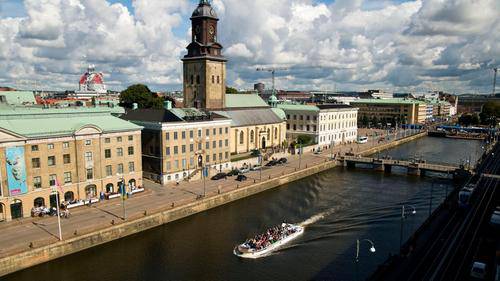
Swedish Islamic school closed over radicalisation fears
A leading Islamic school in Sweden accused of appointing teachers who recently returned from fighting for ISIS abroad has been shut down amid fears students were at risk of radicalisation.
Abdel Nasser El Nadi, the former principal of Vetenskapsskolan school in Gothenburg, allegedly was involved in the transferring of hundreds of thousands of dollars to bank accounts abroad.
He was arrested in May by Swedish police along with four other clerics deemed security threats. A new administration took over and changed its name to the Sapphire School but officials said problems persisted.
El Nadi was born in Egypt but has lived in Sweden since 1992 and twice has had Swedish citizenship applications turned down.
It was found that the 450 students at the school were still at risk of being “subjected to radicalisation and recruitment to environments that accept violence or serious crime as a method of political change”.
“The reason is that we have made an assessment that the new owner does not take a completely independent position with the previous owner,” said the school inspectorate’s lawyer Johan Kylenfelt.
It was claimed that one member of the school’s new board previously shared ISIS propaganda online.
“Because there are links to previous owners who are deemed to be a threat to the security of the state, the Swedish School Inspectorate assesses that there is a serious risk to the school’s students,” the decision to close the school read.
The school is expected to appeal the decision. Last month calls for it to be closed began to grow.
“It is extremely gratifying that all parties in Gothenburg have been thinking and now follow the initiative of the Swedish Democrats to shut down the business,” municipal councillor Joergen Fogelklou told SVT News West.
“For us, the safety of the city’s children goes before the well-being of terrorists.”
There are 11 Muslim schools in Sweden, all funded by the state.
It is believed that at least 300 Swedish citizens travelled to Syria and Iraq between 2012 and 2017 to join extremists. Roughly half have returned and around a third came form Gothenburg.
Source: The National





